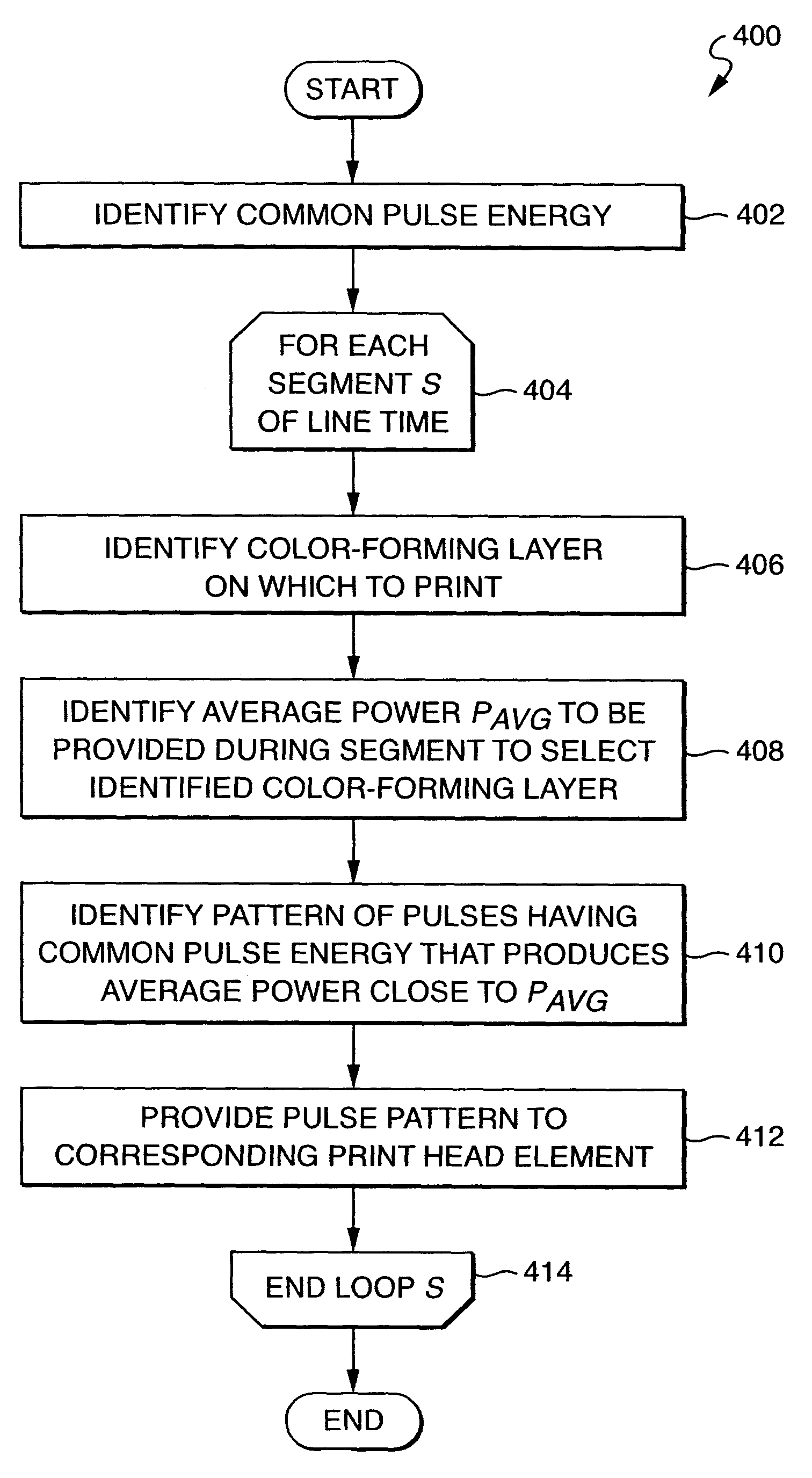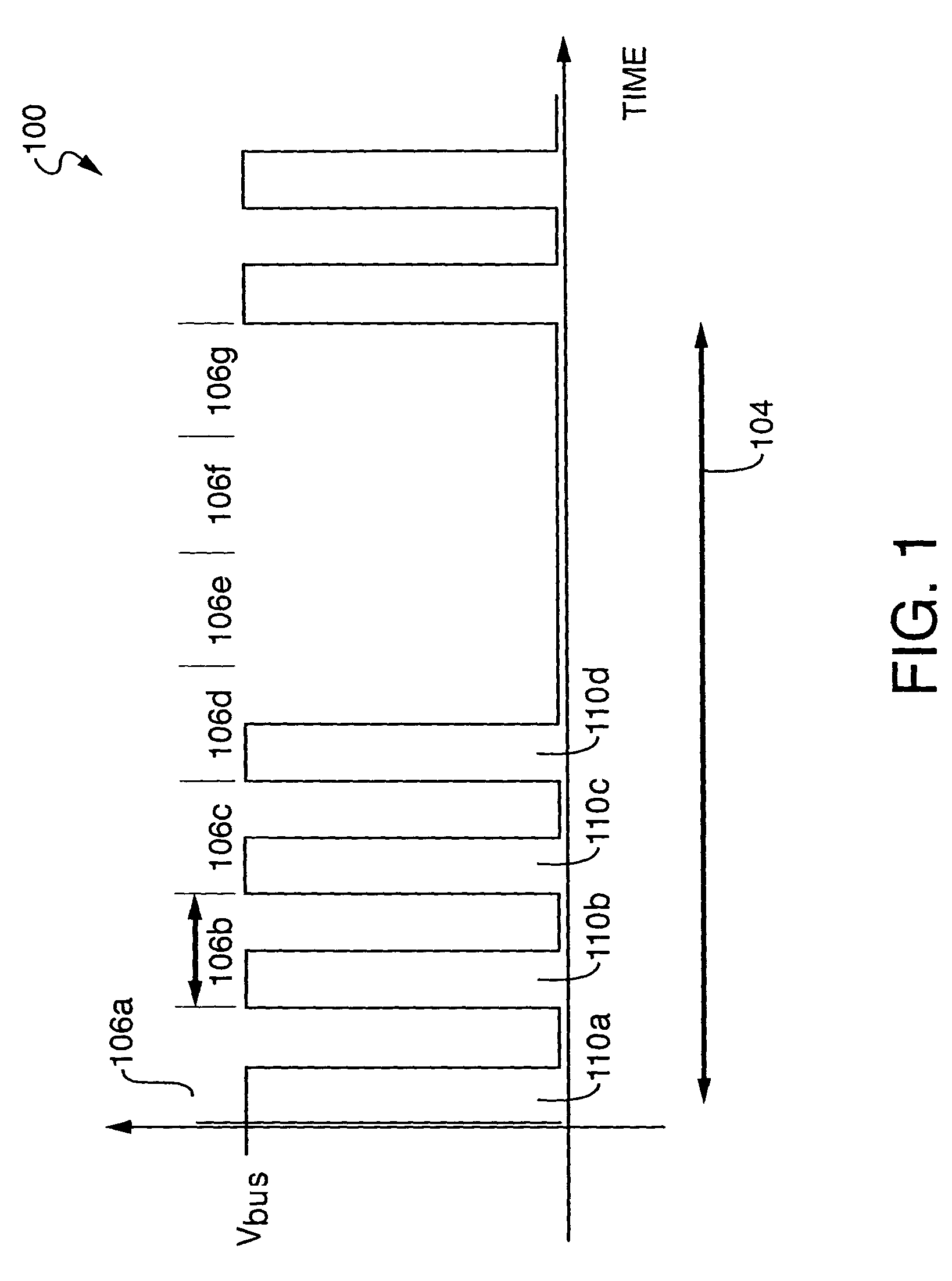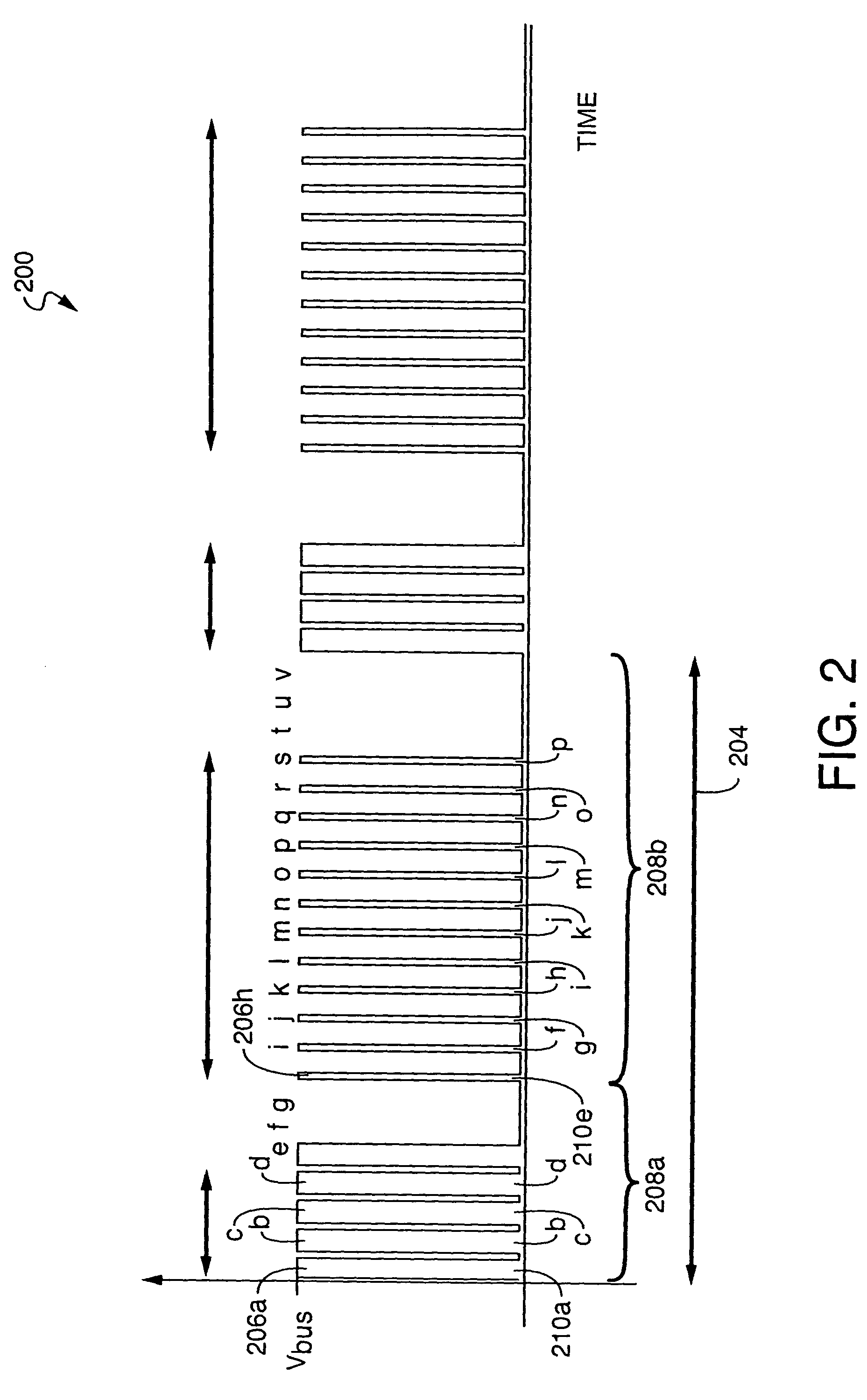Print head pulsing techniques for multicolor printers
a multi-color printer and print head technology, applied in the field of digital printing system, can solve the problems of insufficient control of print head, increase complexity and cost, and decrease the convenience of such printing systems, and achieve the effect of reducing the peak power requirements of print head and coincidence of pulses
- Summary
- Abstract
- Description
- Claims
- Application Information
AI Technical Summary
Benefits of technology
Problems solved by technology
Method used
Image
Examples
Embodiment Construction
[0042]In one aspect of the invention there is disclosed a multicolor thermal imaging system wherein different heating elements on a thermal print head can print on different color-forming layers of a multicolor thermal imaging member in a single pass. The line-printing time is divided into portions, each of which is divided into a plurality of subintervals. All of the pulses within the portions have the same energy. In one embodiment, every pulse has the same amplitude and duration. Different colors are selected for printing during the different portions by varying the fraction of subintervals that contain pulses. This technique allows multiple colors to be printed using the same strobe pulses. Pulsing patterns may be chosen to reduce the coincidence of pulses provided to multiple print head elements, thereby reducing the peak power requirements of the print head.
[0043]For example, referring to FIG. 3, a graph 300 is shown which plots the voltage across a single print head element o...
PUM
 Login to View More
Login to View More Abstract
Description
Claims
Application Information
 Login to View More
Login to View More - R&D
- Intellectual Property
- Life Sciences
- Materials
- Tech Scout
- Unparalleled Data Quality
- Higher Quality Content
- 60% Fewer Hallucinations
Browse by: Latest US Patents, China's latest patents, Technical Efficacy Thesaurus, Application Domain, Technology Topic, Popular Technical Reports.
© 2025 PatSnap. All rights reserved.Legal|Privacy policy|Modern Slavery Act Transparency Statement|Sitemap|About US| Contact US: help@patsnap.com



